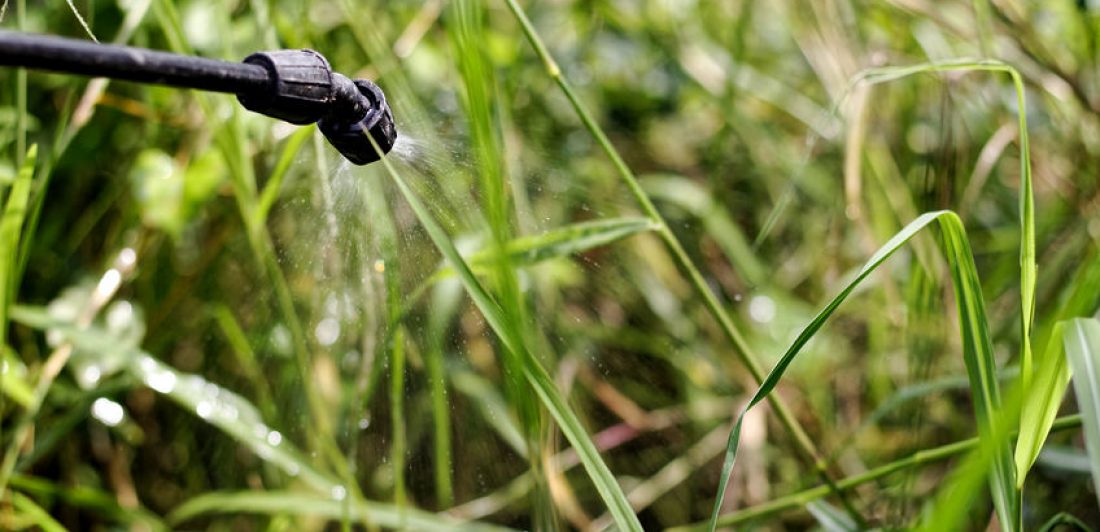While Paraquat has long been banned in Britain and other European countries, the weed killer is growing in use in the United States. [1] As more agricultural workers come across Roundup-resistant weeds, Paraquat has been marketed in the United States as a weed killer alternative. In fact, paraquat use has risen by about 200% since 2009. While the herbicide is effective in killing undesired plant growth, it is also at the center of a growing number of lawsuits. Scientific research consistently shows that paraquat is connected to a host of health complications, including Parkinson’s disease. Agricultural workers, farmers, and families who have been adversely affected by paraquat may be able to pursue a paraquat lawsuit.
A Paraquat Lawsuit lawyer from The Carlson Law Firm is ready to answer your questions. Give us a call today at 800-359-5690.
What is paraquat?
Paraquat is a cheap and fast-acting product used for weed and grass control. These characteristics are what contribute to its widespread use in much of the developing world. In the United States, paraquat is available as a liquid in various strengths. However, the U.S. Environmental Protection Agency (EPA) classifies paraquat as “restricted use,” meaning that only people who are licensed can apply the product.
The product is reasonably safe for agricultural use. If exposed to a dermal spray, the product will generally cause only limited, localized injury. However, accidental or deliberate ingestion has an extremely high case-fatality rate. Because of this toxicity, paraquat has been restricted in many parts of the world.
Does the United States regulate paraquat?
Paraquat is banned in 32 countries. However, as mentioned above, the herbicide has become a popular alternative to Monsanto’s Roundup in the United States. Although Roundup has been the preferred herbicidal agent for American agricultural workers, it has faced several obstacles in the U.S. including lawsuits, Roundup resistance and links to non-Hodgkin lymphoma.
To minimize accident ingestion and reduce exposure to workers who mix, load, and apply paraquat, the EPA has required the following since 2016:
- Changes to the label and distribution of supplemental warning materials to highlight the toxicity and risks associated with paraquat products.
- Restricted use of paraquat to certified pesticide applicators only. This includes restricting the use of non-certified applicators even under the supervision of a certified applicator.
- Specialized training for certified applicators who use paraquat to emphasize that the chemical should not be transferred to or stored in improper containers.
- New closed-system packaging designed to prevent transfer or removal of the pesticide except directly into proper application equipment. This will prevent spills, mixing or pouring the pesticide into other containers or other actions that could lead to paraquat exposure.
In October 2020, the EPA took a step in regulating paraquat. The agency sought public input on a proposed decision to “reduce potential ecological risks and protect public health.”
What are the signs of paraquat poisoning?
When you’ve been exposed to a toxic level of paraquat, symptoms may develop quickly. Soon after exposure, you may experience the following:
- Nausea
- Abdominal pain
- Diarrhea that may be bloody
- Vomiting
Even just ingesting small amounts of paraquat will cause severe symptoms within several hours to several days. These symptoms include the following:
- Muscle weakness
- Seizures
- Confusion
- Fast heart rate
- Respiratory failure and difficulty of breathing
- Coma
What is the link between Paraquat and Parkinson’s Disease?
Parkinson’s disease is a disorder of the central nervous system that affects movement. Symptoms start gradually, with tremors being barely noticeable in just one hand. Tremors are common, but the disorder also commonly causes stiffness or slowing of movement. Other symptoms such as speaking difficulties and swallowing may be common, and people may experience non-motor symptoms.
Researchers have suggested a possible link between pesticide and herbicide exposure and the possible chances of developing Parkinson’s disease. The symptoms of Parkinson’s Disease include:
- Bradykinesia (slow movement)
- Tremors in the arms and legs
- Trouble writing
- Rigid Muscles
- Loss of smiling, blinking, and other autonomous movements
- Slurred speech, hesitation, low volume
- Impaired balance and posture
Can I file a Paraquat lawsuit?
Yes. If a physician diagnosed you or a loved one with Parkinson’s disease, you may be able eligible for compensation from paraquat manufacturers.
Speaking with a paraquat attorney at The Carlson Law Firm will help you determine your legal options. A Paraquat Lawsuit will outline the following facts about your case:
- When and how you or a loved one was exposed to Paraquat
- Details about your Parkinson’s diagnosis was made
- How the Parkinson’s has impacted your life
- Expenses incurred as a result of Paraquat manufacturers negligence
The complaint will present the allegations against the defendants, the maker of Paraquat. Your complaint may include several claims against the manufacturers, including that they:
- Knew or should’ve known that Paraquat is highly toxic and that exposure could cause neurotoxicity.
- Failed to inform the public of the dangers of the product.
- Negligently designed and marketed the product.
- Failed to take the necessary steps to ensure the safety of Paraquat users-including you and a loved one.
At The Carlson Law Firm, we care
If you or a loved one has suffered injury from the herbicide Paraquat, it is in your best interest to contact a Paraquat attorney. Here at The Carlson Law Firm, we believe that it is important to hold negligent companies accountable. The manufacturers of Paraquat failed to warn the public of the dangers of their product properly. Contact us today for a free consultation. We care, we can help.
References
- Paraquat and Parkinson’s Disease: Why is the EPA Allowing Dangerous Chemical to be Used?. Retrieved April 2021.





